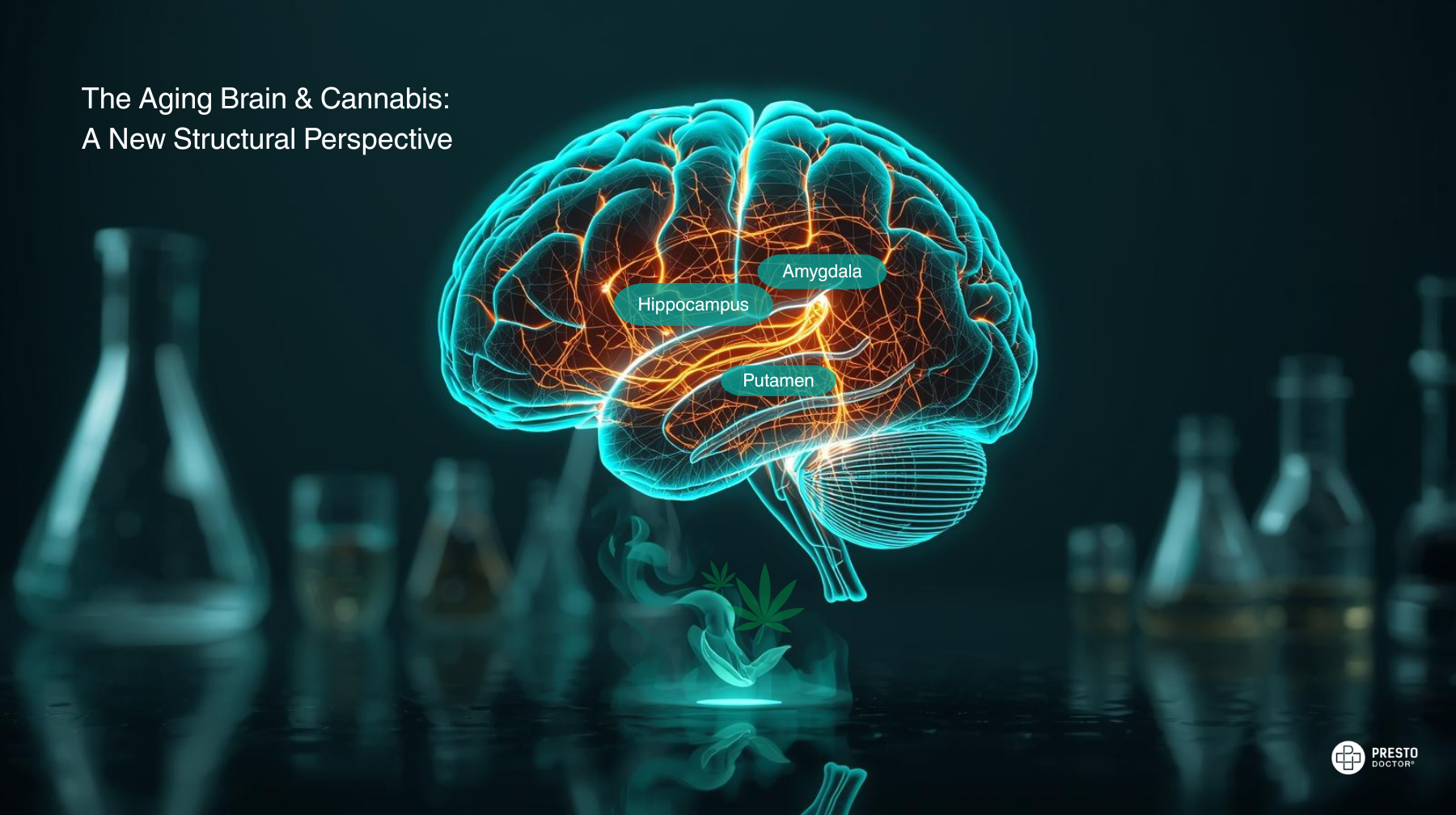
Obsessive-Compulsive Disorder (OCD) is a debilitating mental health condition that is characterized by intrusive thoughts and compulsive behaviors. It affects millions of people worldwide and can be incredibly frustrating and distressing to live with. While there are a variety of treatments available, many individuals do not find relief with traditional medications or therapies. However, recent research suggests that cannabis may be a promising option for those seeking relief from OCD symptoms. We’ll explore the ways in which cannabis can help ease OCD symptoms and compulsions and how to use it effectively. We’ll also examine the potential benefits and drawbacks of using cannabis to manage OCD. If you or someone you know is struggling with OCD, read on to learn more about how cannabis may be able to help.
Understanding OCD
Obsessive-Compulsive Disorder (OCD) is a mental health condition that affects millions of individuals worldwide. It is characterized by intrusive thoughts or obsessions that lead to repetitive behaviors or compulsions. These obsessions can vary greatly from person to person. Common themes include fears of contamination, the need for symmetry or order, and intrusive thoughts of harm or violence.
Living with OCD can be incredibly challenging and distressing for those affected. The constant cycle of intrusive thoughts and compulsive behaviors can significantly impact daily life, relationships, and overall well-being. It’s important to understand that OCD is not simply a quirk or preference for cleanliness or organization. It is a serious medical condition that requires appropriate treatment and support.
Individuals with OCD often experience high levels of anxiety and stress, as their obsessions create a persistent sense of fear or doubt. The compulsions, performed in an attempt to alleviate these anxieties, provide temporary relief but can become time-consuming and interfere with daily activities.
The severity of OCD symptoms can vary, ranging from mild to severe, and can significantly impact an individual’s quality of life.
In recent years, there has been growing interest in the potential therapeutic benefits of cannabis for individuals with OCD. While research is still in its early stages, some studies suggest that certain compounds found in cannabis, such as cannabidiol (CBD), may have a positive impact on reducing anxiety and intrusive thoughts associated with OCD.
It’s important to note that cannabis should not be considered a cure for OCD. Usage should come with careful consideration with a healthcare professional. However, exploring alternative treatment options, such as CBD, alongside traditional therapies can offer individuals with OCD a potential avenue for relief and improved symptom management.
The Limitations Of Conventional Treatments For OCD
While conventional treatments for OCD, such as therapy and medication, have proven to be effective for many individuals, they do have their limitations. Therapy, such as cognitive-behavioral therapy (CBT), can help individuals manage their OCD symptoms by identifying triggers and developing coping mechanisms. Medications, such as selective serotonin reuptake inhibitors (SSRIs), can also help reduce anxiety and obsessive thoughts.
However, these treatments may not work for everyone, and some individuals may experience side effects or find the effects to be insufficient. Furthermore, conventional treatments often focus on symptom management rather than addressing the root causes of OCD. This can leave individuals feeling frustrated and searching for alternative options.
This is where cannabis comes into the picture. Cannabis, specifically compounds like cannabidiol (CBD) and tetrahydrocannabinol (THC), has shown promising potential in alleviating symptoms of OCD. CBD, known for its non-psychoactive properties, has been found to have anxiolytic and anti-compulsive effects. It can help reduce anxiety levels and mitigate obsessive thoughts and compulsions.
THC, on the other hand, may have a more direct impact on the brain’s reward system and can potentially disrupt the feedback loop associated with OCD behaviors. By modulating the release of neurotransmitters like dopamine, THC may help reduce compulsive behaviors and intrusive thoughts.
Potential Benefits Of Cannabis For OCD Symptoms
One of the primary components of cannabis, known as cannabidiol (CBD), has shown promise in reducing anxiety and obsessive thoughts – two key symptoms of OCD. CBD works by interacting with the body’s endocannabinoid system. The ednocannabinoid system plays a crucial role in regulating various physiological processes, including mood and anxiety.
Studies have indicated that CBD may help modulate the brain’s response to intrusive thoughts and reduce the intensity of compulsions. It does so by influencing the activity of serotonin receptors, which have control of mood regulation and anxiety management. By promoting a sense of calm and relaxation, CBD may help individuals with OCD regain control over their thoughts and behaviors.
Another compound found in cannabis, tetrahydrocannabinol (THC), has also shown potential in alleviating symptoms associated with OCD. THC has psychoactive effects, which can induce a sense of euphoria and relaxation. This may help individuals with OCD experience temporary relief from the anxiety and stress that often accompany their symptoms.
However, it is important to note that the use of cannabis for OCD should be approached with caution. The effects of cannabis can vary from person to person, and some individuals may experience adverse reactions or worsened symptoms.
The Endocannabinoid System And Its Role In Mental Health
To understand how cannabis can potentially ease OCD symptoms and compulsions, it is crucial to explore the role of the endocannabinoid system (ECS) in mental health. The ECS is a complex network of receptors, enzymes, and molecules that help regulate various physiological processes in the body, including mood, cognition, and emotional responses.
The ECS consists of two main receptors: CB1 and CB2. CB1 receptors are primarily found in the central nervous system, including the brain. CB2 receptors are predominantly located in the immune system and peripheral tissues. These receptors are activated by endocannabinoids, which are naturally produced compounds within the body, and can also be influenced by phytocannabinoids, such as those found in cannabis.
Research suggests that dysregulation of the ECS may contribute to the development and progression of mental health disorders, including OCD. Studies have shown that individuals with OCD may have alterations in the levels of endocannabinoids and the expression of ECS receptors in certain brain regions associated with OCD symptoms.
By interacting with the ECS, cannabinoids found in cannabis, such as THC (tetrahydrocannabinol) and CBD (cannabidiol), have the potential to modulate the functioning of this system and alleviate symptoms associated with OCD. THC, known for its psychoactive effects, may help reduce anxiety and intrusive thoughts commonly experienced by individuals with OCD. On the other hand, CBD, a non-psychoactive compound, has been studied for its anxiolytic and anti-compulsive properties, showing promising results in preclinical and clinical trials.
Research Studies: The Effects of Cannabis on OCD
Research studies on the effects of cannabis on OCD symptoms and compulsions have gained significant attention in recent years.
Several studies have shown promising results, indicating that cannabis may offer relief for individuals struggling with OCD symptoms. One study published in the Journal of Clinical Psychology in 2013 found that cannabis reduced compulsions, anxiety, and distress in participants with OCD. Another study published in the Journal of Affective Disorders in 2019 revealed that cannabis use was associated with a significant decrease in obsessive-compulsive symptoms.
The potential benefits of cannabis for OCD lie in its interaction with the endocannabinoid system (ECS). The ECS is a network of receptors and molecules in the body that help to regulate various physiological processes. The ECS has been implicated in mood regulation, anxiety, and compulsive behaviors, making it a potential target for alleviating OCD symptoms.
Cannabis contains cannabinoids, such as tetrahydrocannabinol (THC) and cannabidiol (CBD), which interact with the ECS. THC possesses psychoactive properties, whereas CBD is non-intoxicating. Both cannabinoids have shown potential in reducing anxiety and modulating compulsive behaviors.
Before considering cannabis as a treatment option for OCD, it is crucial to consult with a healthcare professional familiar with cannabis therapeutics. They can provide personalized guidance, taking into account factors like individual symptoms, medical history, and potential interactions with other medications.
How Cannabis Can Help Alleviate Anxiety and Stress Associated with OCD
Living with OCD can be an overwhelming and exhausting experience. The constant intrusive thoughts, the need to perform repetitive rituals, and the overwhelming anxiety can take a toll on one’s mental and emotional well-being. While there are various treatment options available, an emerging alternative that has shown promising results is the use of cannabis.
Cannabis contains compounds called cannabinoids, such as THC and CBD, which interact with the body’s endocannabinoid system. This system plays a crucial role in regulating various physiological processes, including mood, stress response, and anxiety levels. Research shows that cannabis can help alleviate anxiety and stress, which are common symptoms that present with OCD.
The cannabinoids present in cannabis have been found to have anxiolytic properties. This means they can reduce feelings of anxiety and promote a sense of calm and relaxation. This can be particularly beneficial for individuals with OCD who often experience heightened levels of anxiety and stress due to their intrusive thoughts and compulsions.
Furthermore, cannabis can modulate the release of neurotransmitters in the brain, including serotonin. Serotonin plays a key role in regulating mood and anxiety. By increasing serotonin levels, cannabis may help stabilize mood and reduce anxiety levels in individuals with OCD.
In conclusion, cannabis holds promise as a potential treatment option for alleviating anxiety and stress associated with OCD. While more research is necessary, the anxiolytic properties of cannabinoids and their ability to modulate neurotransmitters make cannabis a potential tool in managing the symptoms of OCD.
Strains and Cannabinoids That May Be Beneficial For OCD
When it comes to using cannabis as a potential treatment for OCD symptoms and compulsions, it’s important to understand that not all strains and cannabinoids are the same. The varying chemical profiles of different cannabis strains can result in different effects on the mind and body. This means that certain strains and cannabinoids may be more beneficial for managing OCD symptoms than others.
One strain that has shown promise in relieving OCD symptoms is Sour Diesel. Known for its energizing and uplifting effects, this strain can help alleviate anxiety and promote a sense of focus and clarity. This can be particularly beneficial for individuals with OCD who often experience intrusive thoughts and heightened levels of stress.
Another strain that may be worth exploring is Harlequin. This strain is high in CBD, a non-psychoactive cannabinoid that has anti-anxiety and anti-inflammatory properties. By reducing anxiety levels, Harlequin may help individuals with OCD feel more calm and in control. Additionally, this may potentially reduce the frequency and intensity of compulsive behaviors.
In addition to specific strains, certain cannabinoids have also shown potential in managing OCD symptoms. One such cannabinoid is cannabigerol (CBG), which has demonstrated anti-anxiety and neuroprotective properties. CBG may help modulate serotonin receptors in the brain, which are involved in regulating mood and anxiety levels.
Potential Risks When Using Cannabis For OCD
While cannabis shows promise in alleviating OCD symptoms and compulsions, it’s essential to be aware of potential risks. As with any therapeutic substance, it is crucial to approach cannabis use for OCD with caution and informed decision-making.
One significant consideration is the psychoactive component of cannabis, namely delta-9-tetrahydrocannabinol (THC). THC is responsible for the euphoric effects of cannabis and may affect cognitive function and perception. For individuals with OCD, these psychoactive effects may interfere with their ability to focus, concentrate, or engage in certain daily activities.
Another important factor to consider is the individual’s overall mental health profile. Cannabis use may have varying effects on different individuals. This is especially true for those with pre-existing mental health conditions, such as anxiety or depression. It is crucial to consult with a healthcare professional before incorporating cannabis into their treatment plan. Cannabis use may exacerbate certain symptoms or interact with existing medications, thus necessitating tailored guidance and supervision.
Lastly, seeking professional guidance is crucial when exploring cannabis as a potential therapeutic option for OCD. A healthcare professional can provide personalized advice, taking into account the individual’s specific symptoms, medical history, and other relevant factors.
Balancing the Conversation: Considering a Holistic Approach
When it comes to managing OCD symptoms and compulsions, finding the right balance is key. While cannabis has shown promise in alleviating some of these symptoms, it is crucial to approach its use in a responsible and informed manner. Consulting with healthcare professionals is essential to ensure that you are making the best decisions for your overall well-being.
In addition to consulting with healthcare professionals, it is important to consider a holistic approach when incorporating cannabis into your OCD management plan. While cannabis may offer relief, it is best as part of a comprehensive strategy that combines various therapeutic modalities. This may include cognitive-behavioral therapy, mindfulness techniques, stress reduction practices, and lifestyle adjustments.
By adopting a holistic approach, you create a solid foundation for managing your OCD symptoms and compulsions. Cannabis can be used as a complementary tool alongside these other strategies, enhancing their effectiveness and promoting overall well-being. It is crucial to understand that cannabis is not a standalone solution but rather a piece of the puzzle in achieving relief and balance.
Remember, finding the right balance means acknowledging the importance of consulting with healthcare professionals and considering a holistic approach. By doing so, you can unlock the potential benefits that cannabis may offer in easing your OCD symptoms and compulsions, while ensuring that your overall health and well-being remain a top priority.






